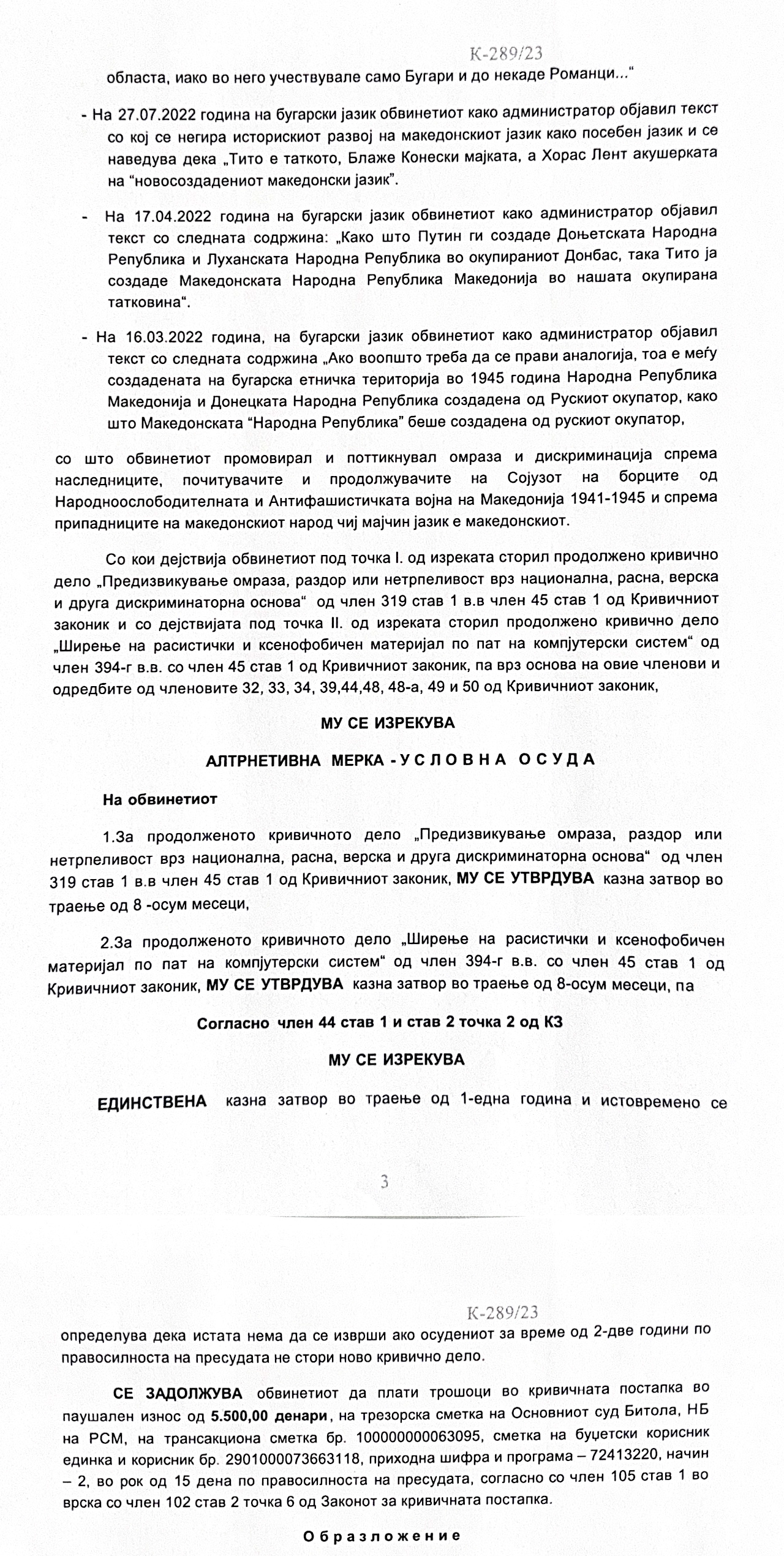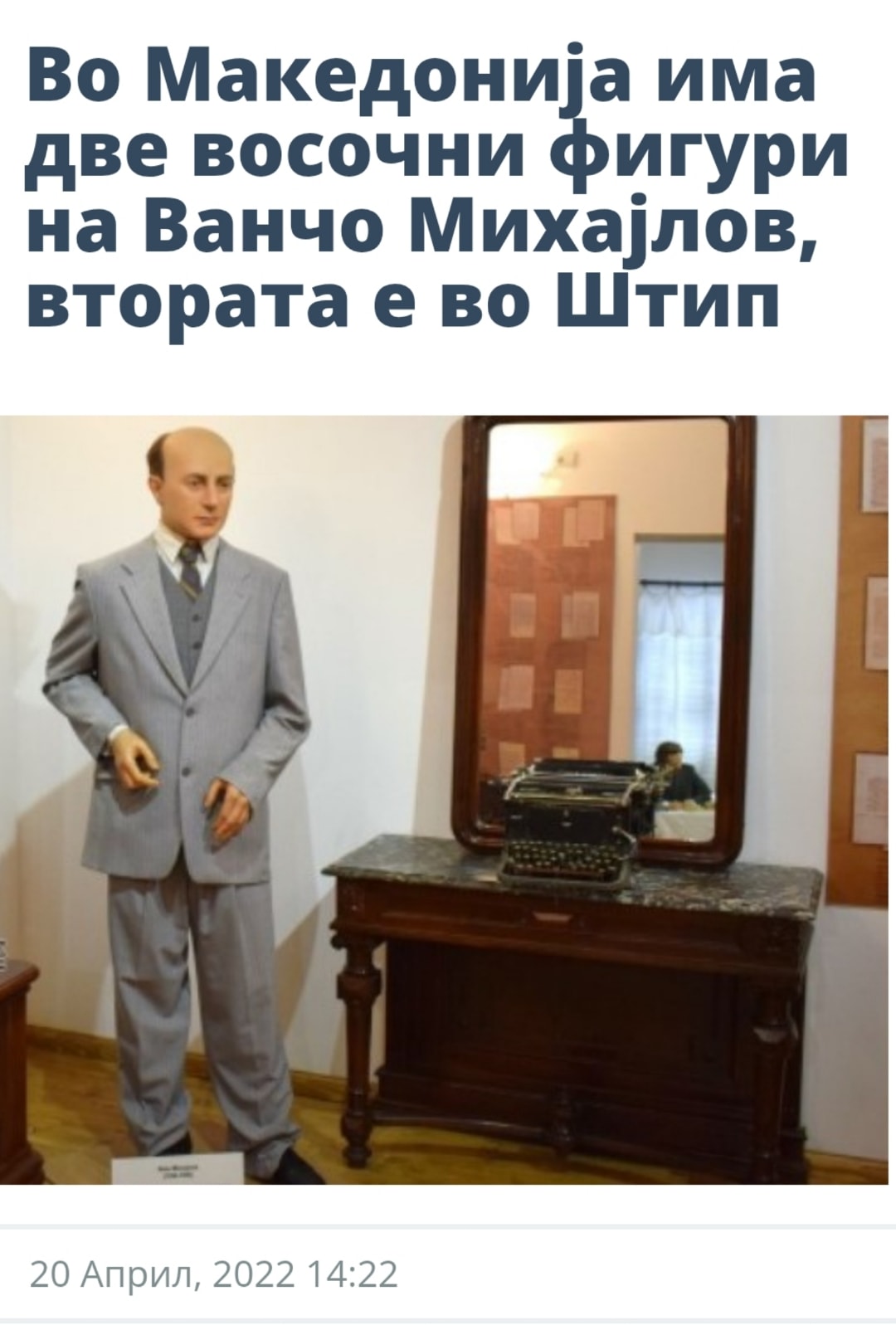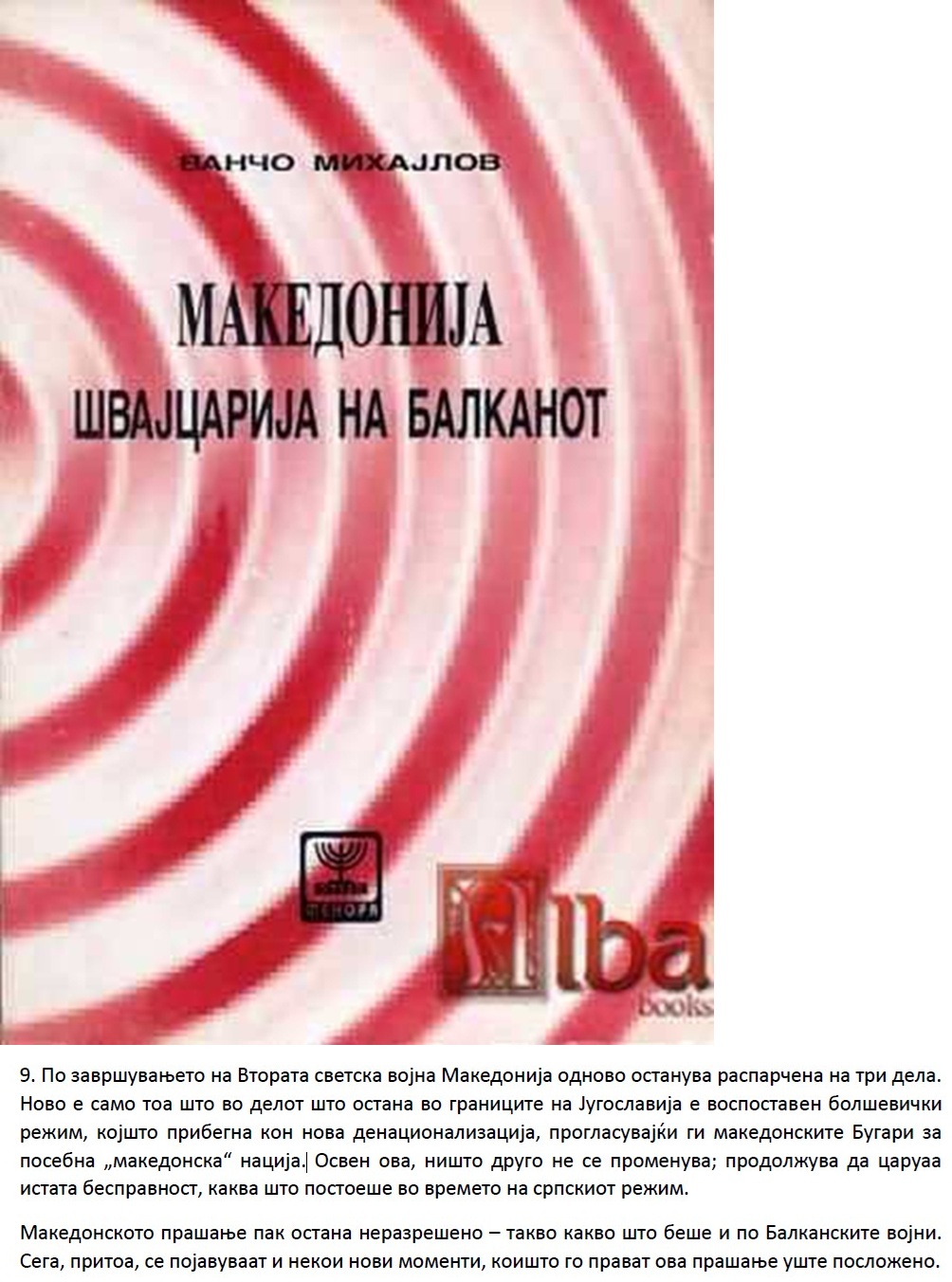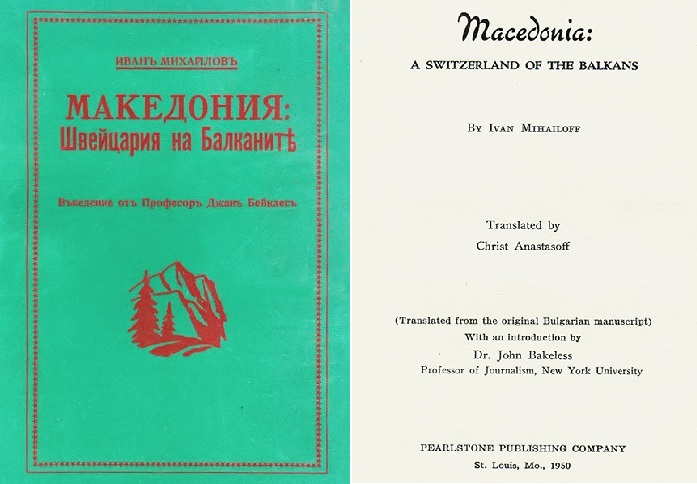site.btaAssociation of the Descendants of Refugees and Migrants from the Territory of the Republic of North Macedonia and Friends: Violation of Freedom of Expression in the Case of Lyupcho Georgievski from Bitola


To:
Ms Henna Virkkunen, Executive Vice-President of the European Commission for Technological Sovereignty, Security and Democracy
Ms Kaja Kallas, High Representative for Foreign Affairs and Security Policy
Mr Raffaele Fitto, Executive Vice-President of the European Commission for Cohesion and Reforms
Ms Marta Kos, Commissioner for Enlargement
Mr Michael McGrath, Commissioner for Democracy, Justice, Rule of Law and Consumer Protection
Mr Thomas Waitz, Rapporteur on North Macedonia in the European Parliament
All Members of the European Parliament
Subject: Violation of Freedom of Expression in the Case of Lyupcho Georgievski from Bitola, North Macedonia, a North Macedonian and Bulgarian Citizen
Dear Sir or Madam,
On 29 January 2025, we addressed you regarding a judicial case in North Macedonia against its citizen Lyupcho Georgievski. He is the chairman of the Bulgarian Ivan Mihaylov Cultural Club, established in 2020 and banned in 2023. The proceedings were initiated based on a complaint from Levica, the far-leftist pro-Russian and pro-Serbian party.
Mr Georgievski was charged with inciting racism and xenophobia via electronic means by quoting statements of Ivan Mihaylov – the last leader of the authentic Internal Macedonian Revolutionary Organization (IMRO), established in 1893. The court considered that these quotations allegedly denied the uniqueness of the Macedonian nation. He was also accused of publishing texts in standard Bulgarian and of questioning the official historical narrative regarding the development of the Macedonian language.
On 12 June 2025, the Basic Court in Bitola sentenced Mr Georgievski to one year in prison, suspended for two years (Appendix 1). The judgment states that he ‘knew that in a discriminatory manner he would incite hatred and intolerance based on ethnicity, language, religion, and social status... allowed the placement of a sign at the association's office entrance bearing a quote by Ivan Mihaylov denying the separateness of the Macedonian nation... and as administrator of the Facebook page of the Ivan Mihaylov Cultural Club, used a computer system to promote ideas encouraging hatred and discrimination based on ethnic and other beliefs.’
This ruling is not based on Mr Georgievski’s own statements, but rather on the act of quoting a historical figure – an act that in democratic societies falls under the protection of freedom of expression.
We note with concern that the abbreviation IMRO is part of the name of the current ruling party in North Macedonia: VMRO-DPMNE, a party with no ideological connection to the original organization. Despite its formal pro-European rhetoric, this party engages in actions that destabilize the region of the Central Balkans and undermine democratic principles.
The prosecution of Mr Georgievski reflects a Yugoslav-era legacy of suppressing dissent and rewriting history by restricting freedom of speech. This case aims to intimidate citizens who engage with historical truth. For this reason, we had urged EU representatives to observe the trial. Unfortunately, no European institution showed interest, which only encouraged the repressive tendencies of the regime in Skopje.
We are particularly disheartened by the inaction of Mr Thomas Waitz, Rapporteur on North Macedonia, who failed to investigate this politically motivated trial. The draft report on North Macedonia being prepared in the European Parliament is unbalanced and one-sided, based solely on meetings with government officials in Skopje and none with repressed citizens who preserve their Bulgarian identity despite daily hate speech and repression.
The political discourse in North Macedonia is riddled with contradictions. For instance, the VMRO-DPMNE ruling party, founded in 1990, claims continuity with the historical IMRO, including its congresses held under Ivan Mihaylov's leadership in 1925, 1928, and 1932. The party even includes these congresses in its official numbering.
Currently, there are two museums of the Macedonian struggle: in Skopje and Shtip, both featuring wax figures of Ivan Mihaylov (Appendix 2). In 1995, the Skopje-based Menora Publishing House released Mihaylov’s theoretical work Macedonia: Switzerland of the Balkans in the Macedonian language codified in 1945 (Appendix 3), a book originally published in the USA in 1950 in both Bulgarian and English (Appendices 4 and 5). At the time, the book enjoyed favourable reviews from leading European politicians and media.
Clearly, Ivan Mihaylov is a known and recognized historical figure in North Macedonia. We can present hundreds of pages of evidence from the files of the Yugoslav secret police UDBA, which clearly show that representatives of the democratic opposition in the territory of present-day North Macedonia were persecuted and eliminated as followers of Ivan Mihaylov. Yet, while the state promotes selective aspects of his legacy, it continues to harshly punish those who publicly quote him or disseminate documents of the historical IMRO in their original Bulgarian form. All IMRO congress documents – from its foundation in 1893 onward – were written in standard Bulgarian and refer to the population of Macedonia as Bulgarians, not ethnic Macedonians. Today, acknowledging these facts is criminalized in North Macedonia, where freedom of expression is severely restricted.
In light of these developments, we reiterate our call for European institutions to review their conduct in the case of Lyupcho Georgievski and defend his fundamental rights. The court ruling constitutes a violation of Article 10 of the European Convention on Human Rights. A country that systematically suppresses free speech and falsifies history has no place in the European Union unless it reforms and breaks with its totalitarian past.
We therefore appeal to EU institutions responsible for the rule of law, democracy, and enlargement, to closely monitor political processes in North Macedonia and to consider imposing sanctions on officials who violate human rights and propagate hate against the local Bulgarian community.
Respectfully,
Co-Chairpersons:
Prof Trendafil Mitev, DSc
Assoc Prof Spas Tashev, DSc
Mr Iliya Stoyanovski
Secretary:
Mr Dimitar M. Dimitrov
Supported by:
New Political Emigration of Macedonian Bulgarians, represented by Mr Blagoj Shatorov and Mr Goran Serafimov
Blank Statement Lyupcho_Georgievski
Attachments
Appendix 1 – Excerpt from Court Ruling K-289/23 against Lyupcho Georgievski, issued by the Basic Court in Bitola, Republic of North Macedonia.

Appendix 2 – Wax figure of Ivan Mihaylov in the Museum of the Macedonian Struggle in Shtip.

Appendix 3 – Cover and excerpt from a page of the book “Macedonia: Switzerland of the Balkans” by Ivan Mihaylov, published in 1995 by “Menora” Publishing House in Skopje.
Content of the quoted page:
“After the end of the Second World War, Macedonia once again remained divided into three parts. The only new development was that in the part that remained within Yugoslavia’s borders, a Bolshevik regime was established, which initiated a new process of denationalization by declaring the Macedonian Bulgarians to be a separate ‘Macedonian’ nation. Apart from this, nothing else changed; the same lawlessness continued to reign, just as it had under the Serbian regime.”

Appendices 4 and 5 – Original covers of the first editions (1950, USA) of Ivan Mihaylov’s book “Macedonia: Switzerland of the Balkans”, in Bulgarian and English.

/АЧМ/
news.modal.header
news.modal.text